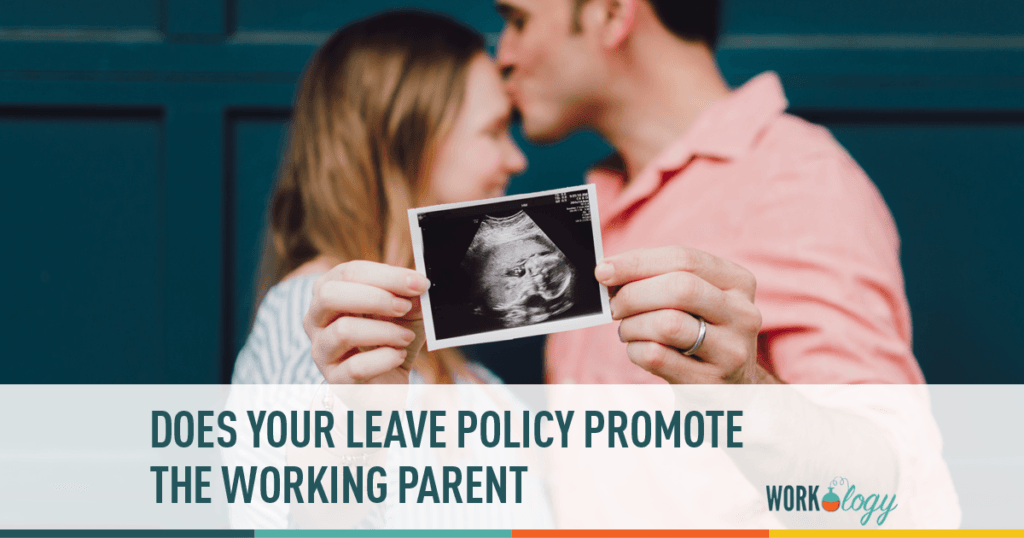Does Your Leave Policy Promote the Working Parent?
While checking out some articles trending for International Women’s Day this past Sunday I came across this neat article in the Washington Post, “An unusual new policy for working mothers” in which they describe Vodafone Group’s new global maternity policy. In addition to 16 weeks of paid leave Vodafone have added another unique benefit.
“For the first six months after returning from maternity leave, new mothers at Vodafone will be able to work just 30 hours a week but continue to earn their full-time salaries. Unlike flexible work policies that many women must individually negotiate with their managers, or reduced-hours arrangements that likewise reduce their salary, the new benefit is aimed at helping women transition back into their jobs after giving birth without derailing their earnings or careers.”
I know of several friends who have transitioned back to work after having a child by working with their managers and coming back part time. It wasn’t without some careful planning and coordination to figure out the financial pieces of it in advance, but they all said that it was worth it and did ease with the transition of juggling a new child(ren) and work schedule. I will say that I was surprised that more of my friends didn’t have this experience though — we mostly work in corporate office settings where there might be more flexibility. Many of them said that they didn’t see it as an option or didn’t feel that their manager was “really open” to it. I had one friend who was flat out told “no” to any options she proposed to working part time after she had her first child. In many of their cases, they find a way to make it work, a couple reluctantly looked for other positions that offered a different kind of flexibility, and another couple ended up leaving the workforce.
I think that what Vodafone has done is innovative and bleeding edge in terms of maternity leave policy. I think its great that its global (we all know that its difficult to put in global policies around leave). However, more importantly, they are putting their money where their mouth is — they want to help working mothers transition — what a great message for retention and engagement.
So… what about the rest of us and our policies? I’m not sure that I see the masses putting in policies such as this. However, it is a great time to have the conversation to look at your policies (if not globally, then try domestically to start) and see how well it aligns with your firm’s views on parental leave and flexible work options. Notice I say parental leave — which means looking at options for both working mothers and fathers. Its a working parent issue, not just a working mother issue. The friend that I had whose employer told her “no” for some of the work alternatives she proposed when she returned to work after having her child — the way that they were able to “make things work” was based on the flexibility of her husband’s employer who did offer and accept other options for his return to work and work flexibility after their child was born.
Here are a few questions to ask as you evaluate your leave plans:
- What is the company’s philosophy /stance on working parents? (ie. do they want to be known as a firm who offers benefits, perks, or options above and beyond what is legally required?)
- When was the last time you evaluated the policy? Does it align with company philosophy? How does it stand up to your competitors (in your industry, location, etc)?
- What are you company demographics — how many working parents do you have? How many do you anticipate in the next 3, 5, 7 years. Is this a concern for candidates that you are trying to source and recruit?
- Would enhancing your leave benefits and options be perceived as a welcomed benefit by your employees (or potential employees that you recruiting)?
- Do you have workers who have left (either stated or suspected) due to difficulty in transitioning back to work after the birth of a child? What do those numbers and trends look like?
- Do you have clear and easy to understand options for employees and managers to use to help facilitate conversations around flex work options for working parents?
- How easy is it to use your programs? By managers? By employees?
- What kind of training do you provide to managers around parental leaves (and leaves in general) and workforce planning?
I generally recommend looking at ALL leave plans and not just a couple at a time so that they are all aligned – as well as looking at your entire portfolio of benefits offered to employees.
What do you think of Vodafone’s new policy? Are their pieces of their new policy that your company would ever consider? What parts do you like or dislike the most about it?








One Comment
It’s funny that this is sen as progressiv in the US. Here in Sweden that’s law since 40 years. As an employer you have to adjust according to the mother (Or the fathers as well for that matter) in terms of working hours. But the we also have 450 days of paid maternity/paternity leave. Vodafones deal is kind of lame.
Comments are closed.